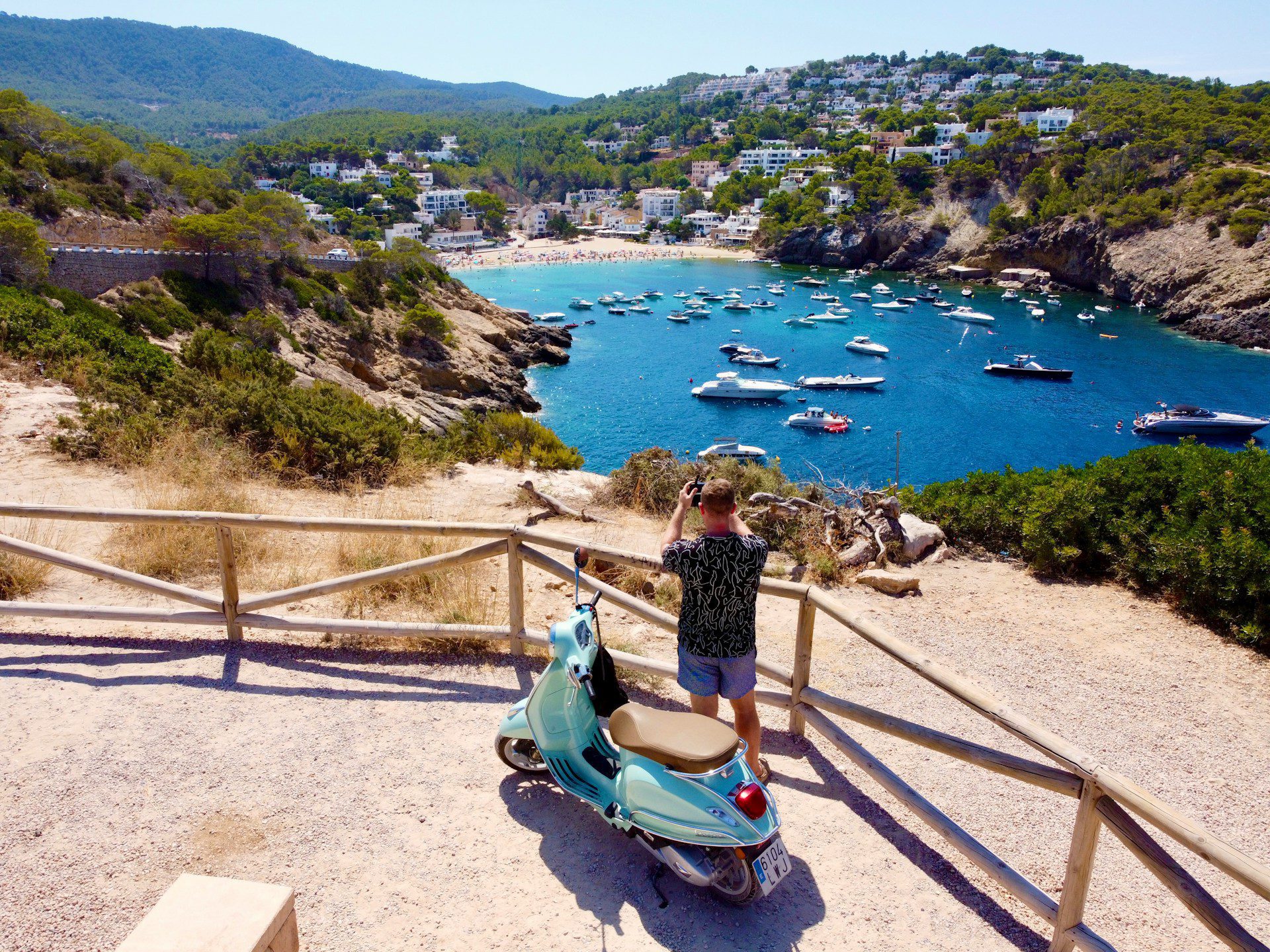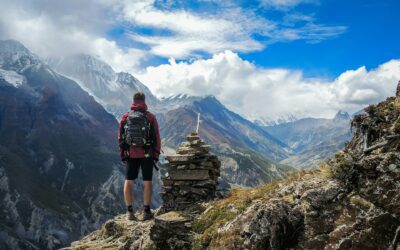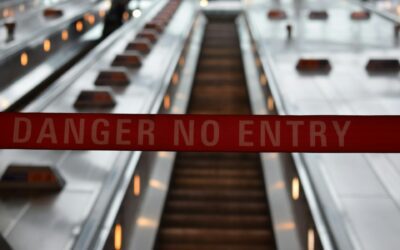|
|
What are the most common questions that people have for digital nomads, and what do digital nomads really think about these burning issues? You can find this information on the Digital Nomads Reddit sub, where the digital nomad curious can get responses from real digital nomads and the community can share their thoughts.
But if you aren’t willing to wade through the sub and its comments, don’t worry, we’ve done the hard work for you. In this article, we’ve picked the most popular questions on the Digital Nomads Reddit and summarized the useful information in the responses (plus the most amusing snarky replies).
We’ve divided the chosen questions into three categories: (1) getting into the digital nomad lifestyle, (2) digital nomad logistics, and (3) digital nomad exit strategies. We haven’t included any questions about specific places, since we are hoping to summarize information that is generally useful.
Theme One: Getting into the Digital Nomad Lifestyle
A lot of questions in the thread were about how to get into the digital nomad lifestyle in the first place.
What do you do for work, besides tech?
Many people imagine that digital nomads mostly work in tech industries as programmers and software developers, as there are the best paying, highest demand, fully remote jobs. So, one Redditor was curious about what the non-tech digital nomads do for a living.
Many of the answers were expected. Travel photography, writing, social media management, and so on. However, several ghostwriters admitted that AI has been decimating their work since the launch of ChatGPT and that they are finding it increasingly difficult to make a living.
Remote teaching was also mentioned several times, including both English teachers and schoolteachers working online for schools in the United States. There is an increasing demand for qualified and certified online schoolteachers. There also seems to be a growing niche for producing online study resources.
Another job that came up a few times was grant writing and fundraising. These are specialist skills that organizations often seek out for new projects.
But perhaps the most commented-on response was hospitality consultant. They explained how they loved their job because they were often put up in nice accommodation and given excellent food as part of their assessment process. However, the Redditor admitted that they needed a lot of experience before they could make the digital nomad transition.
This appears to be a key theme in most careers. If you have enough experience and you are in demand for your expertise, then you are probably in a position to make the digital nomad transition. It is much harder when you are just starting out.
You can find a list of websites where you can find remote jobs here.
As a remote worker, how do you approach your boss about working from a different country?
Remote workers interested in transitioning into the digital nomad lifestyle were also curious about how others approached their bosses to get permission to work from another country.
Worryingly, the vast majority responded that they didn’t ask and suggested that the Redditor just go for it, suggesting a “don’t ask, don’t tell” approach. They suggested strategies like using a VPN to make it look like you are working from your home country so that IT doesn’t tip off your employer.
These are often called stealth or secret digital nomads, and we’ve previously talked about why this is a problem. It is a problem for businesses and managers who need to pay taxes and contributions appropriately and are responsibility for employee health and safety even when they are working remotely.
As many Redditors pointed out in the thread, it is also a problem for remote workers, who can get fired and risk their future careers if they are caught. Most companies have specific rules about where you can work from as required under employment law, so you could be breaking the terms of your contract. But even if you haven’t broken your contract, you have been dishonest and broken trust, which can undermine professional relationships.
Other responders suggested dipping your toe in the water before making the big ask. For example, getting permission to travel for a couple of months and then extending indefinitely. But they emphasized the importance of being non-specific in your request and never lying, plus being prepared for your actions to have consequences.
Some Redditors responded from their own experience that whether you get permission or not often depends on how valuable you are to the company. They also suggested moving from contract to freelance to make the transition.

How do you handle it when one partner is fully remote, and the other is location-dependent?
One Redditor works remotely and is considering the digital nomad lifestyle, but their partner has a location-dependent role, so what should they do?
The top response pointed out that “If one partner is location dependent, then the other partner is not fully remote”. This is very true because your job is not the only thing to consider when defining yourself as location-independent. If you are in a committed relationship, part of that commitment is being in the same place, and your partner needs to be in a certain location, then so do you, at least some of the time.
Most Redditors suggested finding compromises, such as going on solo trips and planning bigger holiday travel together. Others suggested convincing your partner to quit their job and start working online. Another Redditor simply suggested breaking up.
But more thoughtful respondents pointed out that at the heart of digital nomadism is designing the life that you want, and that means deciding on what is most important to you. If travel is important, this means sitting down with your partner and seeing whether they feel the same and whether they are willing to make changes to make that more accessible. If your priorities don’t align in this area, then there are bigger discussions to be had.
How do you deal with the fear of being alone?
One young woman thinking about becoming a digital nomad asked others how they deal with the fear of being alone. Responses were mixed, some admitted that the lifestyle is incredibly lonely and it is something that you need to prepare yourself for mentally. Others shared that they have made better friends on the road than they did back home, forming deep bonds over the shared experience.
Reading the post, many thought that the young woman’s main concern was that choosing to travel would prevent her from finding a partner and starting a family in the not-too-distant future. Some suggested that she review her priorities and that if meeting someone and starting a family soon is a priority, perhaps the lifestyle isn’t for her. Others suggested that you tend to find the right person when you aren’t looking but are doing what you love. Therefore, travel but be open to new connections.
The top-rated advice was that she was young and had options. If you want to travel, do it for a while. If you love it, keep going. If after six months you are still very concerned and feel like there is something missing in your life, then you can change your plans.
Theme Two: Digital Nomad Logistics
The next major group of questions was about the logistics of actually making the digital nomad lifestyle work.
What is an efficient system for digital nomading?
There were a few questions in the thread about how to efficiently be a digital nomad, both in terms of traveling and arriving in new places and remaining productive at work. While many Redditors complained that these questions were too broad and general to solicit a useful response, others shared some of their best tips.
Several digital nomads shared the same recommendation about finding accommodation in a new city. They suggested getting a guest house, Airbnb, or hotel for the first few days when you arrive. They then suggested driving around the areas you want to live in and looking for rental ads. This is a very common way to advertise available properties in many countries. And don’t forget to go down the back streets.
Others suggested joining groups, such as sports groups and community groups, not long after you arrive as a way to meet people and make new friends as soon as possible.
When it came to work productivity, many Redditors pointed out that needing to work to survive was their main motivation for getting things done when they could be exploring. But they had a lot of other tips as well.
Everyone suggested that it is about creating a work routine that works for you and helps you carve out time specifically for work and switch off from work when you should be enjoying yourself. Many suggested that essential to this was either bringing the right gear, so you can create a dedicated workspace wherever you are or using coworking spaces, to give yourself an office.
Others suggested staying in places for longer and revisiting places that you have been before and want to explore further. Spending more time in a place means that you are more likely to have the desire to work to fill your time.

Can you have a pet as a digital nomad?
One Redditor was keen to become a digital nomad but also wanted a pet and wasn’t sure if the two choices were compatible. The consensus was that you can travel with a pet, but it makes traveling much more challenging and more expensive. While it is worth it if you already have a beloved pet that you don’t want to leave behind, if you don’t already have a pet, don’t get one.
Many Redditors shared their experiences of traveling with a pet pointing out that the necessary vet fees and paperwork were both expensive and a hassle. It also limits your options with flights and accommodation, and almost always means that it is more expensive.
One Redditor suggested that if you miss having pets while traveling, join pet-sitting services where you travel and spend time with other people’s pets while making a bit of extra money on the side.
How much luggage do you take with you when traveling from country to country?
Another Redditor wanted to know how much luggage digital nomads generally travel with and whether everyone is engaging with the minimalist lifestyle.
Most respondents suggested that they traveled light, some with just a 30–40-liter backpack, others with just one checked bag, one carry-on bag, and one personal item, which was usually a backpack. Most people agreed that as digital nomads, they had to fit their lives into something that they could carry on their backs.
Many digital nomads suggested that they had one backpack for clothes and the like, and another for electronic items and that this was how they prioritized what they needed to bring with them. Many suggested that they mostly bought new clothes when arriving in a new country and gave them away before moving on to the next.
But not all digital nomads subscribed to the travel light philosophy. Some suggested that they carry up to 100 kilograms with them when they travel. This could usually be accommodated in three checked bags and overweight carry-on and personal items.
Read our ultimate digital nomad packing guide here.
How do you all feed yourselves?
Someone wanted to know how digital nomads feed themselves and if they just eat out all the time. The response was unanimous that while eating out was a big part of the digital nomad lifestyle, you can’t eat out all the time. But eating out is important, as it is part of getting to know the local culture. Plus, in many countries, especially Southeast Asia, it is often cheaper to eat out than cook for one, so it is very common even for locals.
But most digital nomads agreed that they always look for accommodation with at least some kitchen facilities and that they enjoy visiting local grocery stores as part of the overall travel experience. Many choose to make breakfast and lunch for themselves and eat out for dinner and suggested that meal prep was the key to making meals on the go and reducing food costs and waste.
A few digital nomads pointed out that getting enough protein was one of their biggest challenges because it tends to be the most expensive and difficult to prepare part of any meal. They suggested that protein powders and a regular protein shake were something that many digital nomads should get used to.
How do you navigate taxes and healthcare?
One US Redditor asked the digital nomad community how they manage taxes and healthcare. The responses were consistent. Maintain tax residency in the United States and pay your taxes as per usual there. Don’t try to get away with not paying taxes as it will come back to haunt you. Maintain your US tax residency by maintaining a current address in your chosen US state and not spending more than 183 days a year in any single country. Using apps like Flamingo – Travel Days Tracker can be a lifesaver, helping you keep track of your travel days and staying compliant with US and international tax and travel requirements.
Opt out of employer healthcare schemes and instead invest in international health insurance policies that cover you wherever you are in the world. Most will cover you when you are visiting home as well, at least for limited periods. But expect to pay more for insurance that covers you in the United States because healthcare is so expensive there.
Have you ever disliked a palace so much that you left early?
One digital nomad Redditor asked others whether they had ever disliked a place so much that they left earlier than planned. The answer was a resounding yes! While most people agreed that you shouldn’t expect to like places as soon as you arrive and need to give it a week before judging a place, many admitted to just not wanting to stay somewhere and leaving in as little as a day.
There were a few common complaints that led people to abandon a place sooner than planned. A big one was that the price of living was very high for a fairly low quality of life. Digital nomads tend to be looking for places where they can have a better quality of life for less. So, paying through the nose for poor accommodation and food could quickly give them a bad taste in the mouth.
Another issue was realizing that a place was more dirty or dangerous than expected. Many travelers expressed a feeling of being unsafe and not wanting to stay. While not necessarily the same as danger, “pester culture”, especially of women, in some countries also put some digital nomads off quickly. Seeing a lot of poverty on the street, rubbish piled up, and air pollution also encouraged travelers to move on.
While I said I wasn’t going to mention specific countries, I did have a chuckle when one Redditor admitted that they moved on quickly from Syndey, Australia, when they saw the size of the spiders! Combined with the high cost of living, this just pushed them over the edge!
Have you felt inexplicably unwell when traveling?
There was one concerning post from a couple who had been traveling together for three years and separately for five. They recently stopped somewhere for longer than usual because they were both feeling generally unwell. It was hard to point to specific symptoms, but more fatigue, lethargy, and just not feeling “normal”. They wanted to know if this was just common digital nomad fatigue.
Redditors agreed that digital nomad fatigue is a thing. You have the stress of always being on the move, your diet is constantly changing and may not be great, and you probably aren’t getting enough exercise or enough sleep. This can burn you out and lead you to just feeling unwell.
However, everyone suggested seeing a doctor to check that it is not something else. Digital nomads tend to skip checkups and ignore niggles due to the hassle of arranging to see a local doctor. But as you travel to new places and become exposed to new things, you can react in unexpected ways.
There were a few armchair diagnoses in the thread as well. Common theories were long COVID and also exposure to mold due to some details that the poster included in their story. We are often not as vigilant about these things when only staying somewhere for six months, but that is more than enough time to cause a problem.
Theme Three: Exit Strategies
While many Redditors were interested in how to get into the digital nomad lifestyle, there were also serious discussions about whether and how digital nomads should exit the lifestyle.
How did you feel about moving back home?
One Redditor wanted to know how ex-digital nomads who had moved back home felt about their decision. Most respondents said that they didn’t regret it because they moved back home to set down roots and build a different type of life. This is a different challenge and still very satisfying.
Others pointed out that as long as the move home is not forced by life circumstances, there is no reason that it needs to be forever. You can move home, and if you miss the digital nomad lifestyle and don’t feel good back home, you can always return to traveling.
Redditors encouraged people not to think of it as an all-or-nothing decision. Building the life you want often involves experimentation and trying things that you think might work for you.
Quite a few respondents shared that when they moved home, they found that it was no longer a good fit for them and after six months to a year, they realized that they couldn’t stay. But most moved to a country that they had previously visited rather than returning to the nomadic lifestyle.

When did you realize that you needed to stop/take a break from nomading?
One poster wanted to know when others realized that they needed to stop or take a break from the digital nomad lifestyle, and how they came to that realization. The poster was unsure whether they wanted to continue or if they were just going through a phase that would pass.
There were two main responses to this question. May said that they had been nomading for years, usually more than five, and are still going strong. The other big group suggested that there was a point before the two-year make when they pretty much felt like they had enough. Many were continuing because they had already booked things, but they were over it.
The biggest problem tended to be travel fatigue and the need to constantly move and start over. This led people to feel unstable, which left them feeling uncomfortable. This tended to be a bigger issue than loneliness or missing people back home. It sometimes manifested in people no longer being in wonder about the new things they were seeing and feeling like it was just more of the same. But posters admitted that this lack of interest was probably a side effect of fatigue.
Those who hadn’t found their limit after several years were more likely to be slomads, spending much more time in each place and “living” there rather than visiting. They pointed out that the lack of stability and structure isn’t just travel-related, and many other people have similar feelings in their lives. It is all about how you live and structure your life to maintain balance.
Many people who shared that they had chosen to stop traveling continuously still work remotely and are still passionate about travel. Many shared that they now break their time up differently, for example spending half the year at their home base and half the year traveling. They suggest that this has been a great way to find a happy equilibrium.
What is your end game?
In the final Reddit question that we are going to look at here, one Redditor asked, what’s your endgame with being a digital nomad? Why are you doing it?
As you might expect, most respondents suggested that traveling is the endgame and that the fulfilling life that they have constructed around traveling is exactly what they want.
Others admitted that the digital nomad lifestyle is not something that they see themselves doing forever and that they do see it as a life experience that will help them grow and build the future that they want.
A few shared that their intention has always been to go home and that they think that traveling will not only broaden their horizons but also help them appreciate what they have back home.
Others suggested that they see the digital nomad phase as an exploration or sampling phase, and they see themselves settling down in another country as an expat in the future. A few suggested that they would like to have bases in two or three countries that they can call home.












